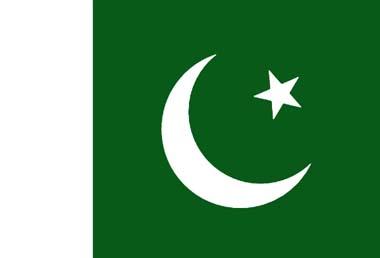Pakistan
2009-08-19 14:32 BJTSpecial Report: Asia Pacific |
Official Name: Islamic Republic of Pakistan.
 |
| Pakistan Flag |
Capital: Islamabad.
Area: 796,096-sq. km. [Punjab 205,344; Sindh 140,914; Northwest Frontier Province 74,521; Balochistan 347,190; Federally Administered Tribal Areas 27,220 and Islamabad (Capital) 906 sq. km.]
Population: 130.60 million (1998 Census)
Ethnic Composition: 95% Muslims, 5% others
Per Capita Income: US $ 460
Currency: Pak. Rupee
Language: Urdu (National language), English (Official)
Archaeological Sites: Mohenjodaro, Harappa, Taxila, Kot Diji, Mehar Garh, and Takht Bahi
Major Cities: Islamabad, Karachi, Lahore, Peshawar, Quetta, Rawalpindi, Hyderabad, Faisalabad and Multan.
About Pakistan
A trip through Pakistan is a face to face encounter with a fascinating land that has withstood countless invasions and preserved the essence of its conquerors in the form of present day monuments and archaeological heritage.
See for yourself the excavated sites at Mohenjodaro and Taxila - seats of the ancient Indus Valley and Gandhara civilizations; the architectural monuments of the Moghuls; the Khyber Pass - the historic inlet to South Asia - or the ancient unchanging traditions of the Kafir Kalash of the Chitral Valley.
For those with an intrinsic love of mountains, Pakistan offers the unique pleasure of its northern mountain ranges, the Himalayas, the Hindukush and the Karakorams - a mountain wonderland unrivalled in the entire world with such formidable peaks as the K-2, the Nanga Parbat, the Rakaposhi, and the Trichmir. These ranges present an awesome challenge for those looking for trekking, mountaineering, angling, or jeep safaris. The resorts in these remote valleys make for an ideal summer get-away.
History of Pakistan
Pakistan emerged on the world map as an independent sovereign state in August 1947, as a result of the division of the British Indian Empire. With a land area of 796,095 sq. km. [including FATA (Federal Administered Tribal Areas) and FANA (Federal Administered Northern Areas)], its population stands at nearly 130.60 million, according to the 1998 Census. Historically, this is one of the most ancient lands known to man. Its cities flourished before Babylon was built; its people practiced the art of good living and citizenship before the celebrated ancient Greeks.
The region traces its history back to at least 2,500 years before Christ, when a highly developed civilization flourished in the Indus Valley. Excavations at Harappa, Mohenjodaro and Kot Diji have brought to light evidence of an advanced civilization flourishing here even in most ancient times. Around 1,500 B.C. the Aryans conquered this region and slowly pushed the Hindu inhabitants further east, towards the Ganges Valley. Later, the Persians occupied the northern regions in 5th century B.C. The Greeks came in 327 B.C., under Alexander of Macedonia, and ran through the region like a meteor. In 712 A.D. the Arabs, led by Mohammed Bin Qasim, landed somewhere near what is now Karachi, and ruled the lower half of Pakistan for two hundred years. During this time Islam took root and influenced the life, culture and traditions of the inhabitants of the region.
From 10th century A.D. onwards, a systematic conquest of Indo-Pakistan by the Muslims from Central Asia began and lasted up to 18th century A.D., when the British colonized the Sub-continent and ruled for nearly 200 years (for 100 years over what is now Pakistan). The Muslim revival began towards the end of the last century when Sir Syed Ahmed Khan, a renowned leader and educationist, launched a movement for intellectual renaissance of the Indian Muslims. In 1930, the well-known poet/philosopher, Dr. Mohammed Iqbal conceived the idea of a separate state for the Muslims of the Sub-continent, and in 1940, the All-India Muslim League adopted the famous Pakistan Resolution.
After seven years of untiring struggle, under the brilliant leadership of Quaid-e-Azam Mohammed Ali Jinnah, Pakistan emerged on the world map as a sovereign state on August 14, 1947, when the British Indian Empire was partitioned into two independent states - India and Pakistan.

 Mail
Mail Share
Share Print
Print


 Video
Video









 2009 China Central Television. All Rights Reserved
2009 China Central Television. All Rights Reserved